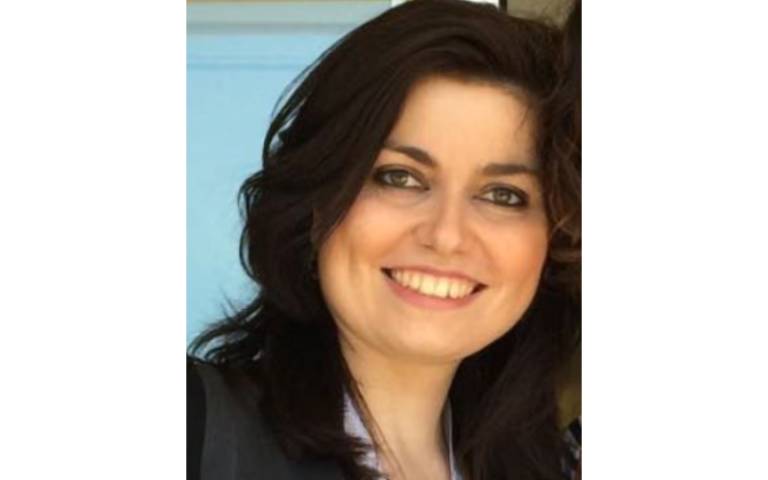Impact stories: Dr Francesca Magrinelli, Edmond J. Safra Foundation Fellow
Philanthropy is paving the way for next-generation leaders in Parkinson’s research. Meet Dr Francesca Magrinelli, who holds a prestigious Edmond J. Safra Fellowship in Movement Disorders.

5 April 2023
What is your role and what does it involve?
I am currently the MJFF Edmond J. Safra Clinical Research Fellow in Movement Disorders at the UCL Queen Square Institute of Neurology.
I have a hybrid clinical and research role. I am a clinical fellow in Movement Disorder and Neurogenetics at the National Hospital for Neurology and Neurosurgery. As a postdoctoral researcher, I'm working in Professor Henry Houlden’s Neurogenetics lab, mainly focusing on new genetics of rare movement disorders and neurodegeneration.
How long have you been at UCL and what was your previous role?
After a short clinical observership in 2017, I came back to UCL in 2019 during the international mobility period of my PhD at the University of Verona, Italy, and I started as a clinical research fellow. I started my post as an Edmond J. Safra Fellow in September 2021.
What working achievement or initiative are you most proud of?
In terms of clinical experience, what I'm most proud of are the level of independence I have gained in assessing tertiary referrals for complex movement disorder cases; the level of clinical exposure I can experience at the National Hospital for Neurology and Neurosurgery; and how all the research I'm doing translates into final diagnosis and active care for patients.
In terms of research, I'm most proud of all the national and international collaborations I've set over these years and some novel genetics findings – in particular, a new Parkinson’s disease gene I’m studying now.
Tell us about a project you are working on now which is top of your to-do list
I'm mainly working on validating a novel candidate gene for early-onset Parkinson’s disease. I'm working both in the genetic lab and with functional tests to prove that there is a causal association between this genetic finding and symptoms of juvenile Parkinson’s disease in five families which I identified all over the world.
Another project is clarifying the genetic underpinnings of familial chin tremor (i.e., hereditary geniospasm), which has been a genetic mystery for decades.
What part does philanthropy play in training the next generation of Parkinson’s leaders?
Nowadays, it's very, very hard to find an opportunity for high-profile and highly specialised training in movement disorders after completing your general neurology training. The most beautiful aspect of the support of the Edmond J. Safra Foundation is that, as a neurology specialist already, you can dedicate 50% of your time to clinical activities in a world-leading centre for movement disorders, and 50% of your time is protected for research. This is particularly relevant for this career stage where you are clinically advanced but looking to transition to an independent clinician-scientist post.
What makes UCL a unique place to host the Edmond J. Safra Fellowship in Movement Disorders?
Clinically, I think the UCL Queen Square Movement Disorders Centre is unique in terms of the exposure you have to patients with common movement disorders such as Parkinson’s disease, but also very rare genetic movement disorders. It's a leading centre for diagnosis, treatment and research and development in this field. It offers extraordinary mentoring and the possibility of contributing to cutting-edge translational research. This, combined with the clinical exposure you get, represents a dream for a clinician scientist.
How will patients benefit from increased opportunities for translational research?
I think that environments where clinical care and research move together are characterised by a very rapid translation of research findings into clinical practice. So being in an environment where you and most of your colleagues work literally from bedside-to-bench and back again has a huge impact on improved recognition of disorders, faster diagnosis, more appropriate treatment and multidisciplinary care. This is the cornerstone making UCL absolutely unique.
 Close
Close

